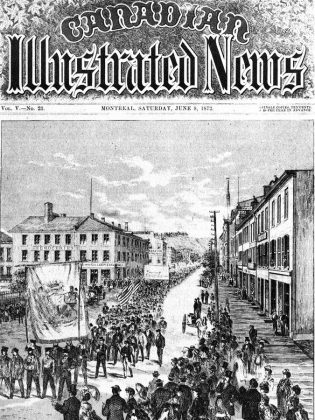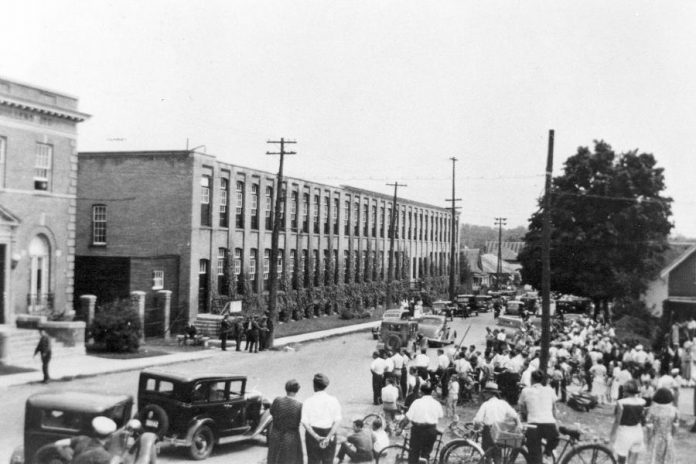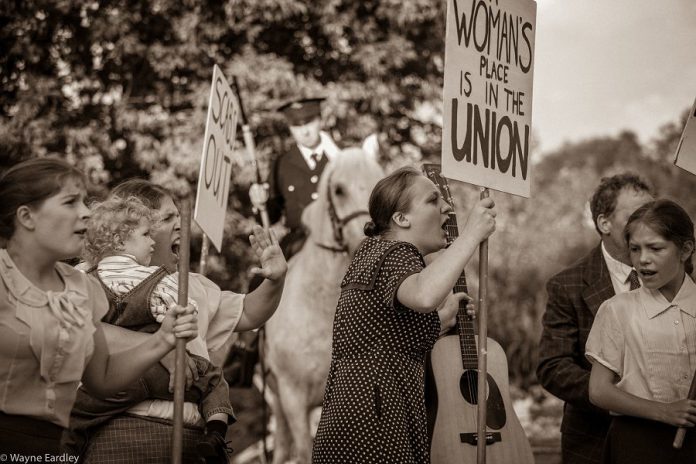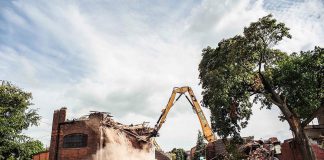
This long weekend, let’s reflect upon the meaning of Labour Day. Where we have been and where we are going as labourers in Peterborough and Canada?
Labour Day began in the 19th century as a celebration of improved labour conditions and labour unions in Canada. For many people, the labour movement and the word “labourer” may have strong associations with physical work and the trades. Whatever kind of work you are able to do, you are a meaningful part of the labour force, and this Monday is our national day to formally celebrate your contributions to our economy and society.
Looking back in local history, Peterborough workers have fought crucial battles in labour movements. Consider the 1919 lockout of moulders demanding a reduced work week and higher wages, the Auburn-Bonnerworth strike of 1937 for higher wages and better treatment for workers, and the unionization fight at General Electric in the 1940s and 1950s. Peterborough is a driving force in labour history.
This Labour Day, take a moment to wonder how labour might fundamentally change in the post-COVID era. What might Labour Day celebrate in 2021 and beyond?
The pandemic has shown that healthy economies and decent work rely on a healthy environment. Our top political issues over the past five months have been crisis preparedness, economic resilience, and inequality, and these are also prevalent themes in the ongoing climate emergency.

The unemployment rate is hovering just under 10 per cent in Peterborough and above 10 per cent nationally. Pressure is mounting on the all levels of government to deliver an economic strategy that will launch our communities down the road to recovery. This strategy also needs to build more resilience and equity into Canadian communities as we anticipate more destabilizing events like COVID-19 in the future.
In the post-COVID era, traditional energy industries have seen major job and financial losses. Our best hope for economic recovery is to create green jobs as part of the essential transition to a decarbonized economy. Stimulus spending and recovery strategies could prioritize the creation of a resilient green economy with an eye to equity. We could create millions of sustainable jobs for Canadians, vibrant and resilient communities, and also improve the lives of marginalized workers.
What could an expansion of green jobs look like in the Peterborough region? There are a number of sectors that have potential for the creation of green jobs locally, including agriculture, tourism, manufacturing, and trades.
As part of a plan to achieve net-zero emissions by 2050, large-scale projects in infrastructure, transportation, energy, and technology sectors will be major job creators. Green jobs, especially those in renewable energy, are often locally based, creating secure regional job markets less susceptible to relocation.
Adding quality jobs within the context of a green recovery could help build community resilience in Peterborough. Decent jobs are stable, have reliable hours, and pay a living wage.
In the Peterborough region, precarious work has become a defining issue that, as of 2018, impacts as many as 64 per cent of local workers. Temporary work, unpredictable hours, no health benefits, and low pay have become status quo in our community, often requiring members of our community to have more than one job just to get by.
Before COVID-19, many people were ringing alarm bells about the increasingly precarious and unequal nature of employment. The pandemic has once again emphasized these issues.
“If you don’t have a car, if you can’t afford to stop working, or if your work is such that it can’t be done remotely, the pandemic has shown you that your safety is not a priority,” observes Dr. David Tough, historian and professor at Trent University.

“(COVID-19) shows us who has access to safe and healthy options for their children, for their elderly parents and grandparents.” Tough adds. “And a lot of people who accepted these inequalities before COVID are now seeing them as inhumane.”
Statistics Canada reported in August the unemployment rate for racialized workers is 16.2 per cent, more than one-and-a-half times higher than the rate for white workers. This statistic quantifies the lived experience of systemic employment discrimination that has only been exacerbated by the COVID-19 pandemic.
Indigenous communities, too, have been disproportionately impacted by COVID-19 due to pre-existing inequities. The impacts of this crisis on women, migrant workers, and racialized groups must be considered in a just green recovery. A justice-centred, community-led green recovery would involve prioritizing decent work for vulnerable populations and supporting self-governance for Indigenous communities as they rebuild from this crisis.

The business community in our region would have a rare opportunity to connect to green recovery funding that could lessen the impact of this crisis on vulnerable persons, and could also help businesses save money in the long-term. Improving indoor workplaces through high-efficiency ventilation, and enhanced heating and cooling would have a beneficial impact on worker health and safety.
Transitioning local business fleets away from combustion vehicles in could help improve air quality and health outcomes. Investing in transit and active transportation for workers is another way businesses can reduce the burden on our most vulnerable, while promoting a green recovery.
Programs that help grow the green economy could usher in a new wave of green jobs in our region. Green Economy Peterborough, set to officially launch services in the spring of 2021, will support small and medium businesses as they secure green recovery funding.
Through participation in our local hub, businesses will create climate action plans, increasing their capacity to partake in the green recovery and potentially access funds that become available.
Green Economy Peterborough will be one of eight community-led business hubs supported by Green Economy Canada. One of the most prominent voices advocating for a green recovery, Green Economy Canada emphasizes that environmental sustainability, human well-being, and business success are synonymous. Our communities can build back better by investing in projects that protect both workers and the environment.
To learn more about Green Economy Peterborough, visit greenup.on.ca/green-economy-peterborough/ or contact Natalie Stephenson, hub coordinator at Green Economy Peterborough, at natalie.stephenson@greenup.on.ca.



























